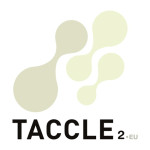“A work of art is, above all, an adventure of the mind” Overview: Pupils read, perform and document themes and images from a selected poem to enhance the kinaesthetic approach to learning. Each learner/group of learners create a Pinterest board based on a poem of their choice. We used The Lady of Shalott by Alfred Full Article…
Flying Forces 11+yrs
Overview This software gives learners a general overview of what is entailed in the design of aircraft. Learners begin to understand how skills, knowledge and understanding from different traditional curriculum subjects must be utilised in some professional careers. In this instance, they will be need to apply aspects of design, technology and physics to be Full Article…
Lead Balloon
Ease **** Overview Learners will further develop their understanding of gravity by comparing weight measurements here on Earth with those on other worlds in our solar system. Learners will be asked to publish a report on their findings. Description Review what learners already know about gravity. You may wish to have them investigate Newton’s biography Full Article…
The Human Race
Age: 12+ yrs Overview: By investigating the most current scientific material regarding human evolution, learners are asked to use their researching, predictive and reporting skills to create a simple web-based thesis on the ‘likely’ future stages of human evolution. Description: The teacher must decide how much initial information to provide, but it’s probably a good Full Article…
Light and shadows
Here’s a great primary school resource from BBC schools about light and shadows – it’s a game you can play in groups or as a class. Before you play the game try out all or some of these introductory activities Brainstorm a list of things that ‘give out light’. (List everything learners suggest, even if Full Article…
Wordle Ways (for teaching literature)
Wordles are particularly suited to short activities such as warm-ups or as prerunners/introductions to larger discussions and tasks. They are also an eyecatching way of presenting familiar terms for revision/introduction. Here are some possibilities: Why not start a class with some wordles made from different Shakespeare tragedies and see if they can guess Full Article…





 English
English Nederlands
Nederlands Deutsch
Deutsch Italiano
Italiano Español
Español Português
Português Română
Română Cymraeg
Cymraeg